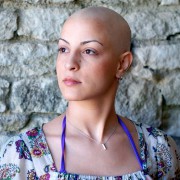 Photo: Getty Images
Photo: Getty Images
A breast cancer drug called Avastin, which is used in conjunction with chemotherapy, was approved by the United States Food and Drug Administration in February 2008 for the treatment of breast cancer, after a clinical trial known as E2100. The FDA gave it the green light as part of their accelerated approval program, where they approve a drug based on clinical data that suggest the drug is beneficial, but without having sufficient evidence to prove that it is.
Essentially, they say the drug is safe and effective and give it to members of the public before they are actually sure that it is and before the drug has been adequately tested, in a practice that may have questionable ethics.
None of the clinical data that the drug company, Genentech, provided showed any evidence that the drug improved survival rates from breast cancer. Neither did it slow the cancer sufficiently enough for it to be considered a viable treatment.
In addition there were significant health risks to patients, including severe high blood pressure, bleeding and hemorrhage, the development of perforations in the body, including the nose, stomach and intestines, and heart attack and heart failure – all of which are life threatening conditions.
Avastin has also been associated with several other serious and potentially life-threatening side effects including the risk of stroke, wound healing complications, organ damage or failure; and the development of a neurological condition called reversible posterior leukoencephalopathy syndrome (RPLS), characterized by high blood pressure, headaches, confusion, seizures, and vision loss from swelling of the brain.
Despite this, the FDA is not recalling the drug and says it can still be used with caution. Instead, they have removed the label that says Avastin is a treatment for breast cancer.
“After careful review of the clinical data, we are recommending that the breast cancer indication for Avastin be removed based on evidence from four independent studies,” said Janet Woodcock, M.D., director of the FDA’s Center for Drug Evaluation and Research.
“Subsequent studies failed to confirm the benefit observed in the original trial. None of the studies demonstrated that patients receiving Avastin lived longer and patients receiving Avastin experienced a significant increase in serious side effects. The limited effects of Avastin combined with the significant risks led us to this difficult decision. The results of these studies are disappointing. We encourage the company to conduct additional research to identify if there may be select groups of patients who might benefit from this drug.”
If you are being given Avastin for breast cancer, see your doctor about an alternative treatment.
For further information on the drug, see:
http://www.fda.gov/Drugs/DrugSafety/PostmarketDrugSafetyInformationforPatientsandProviders/ucm193900.htm






Add a CommentComments
There are no comments yet. Be the first one and get the conversation started!